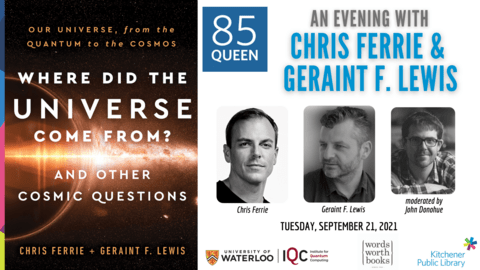IQC Colloquim - Hsin-Yuan (Robert) Huang - California Institute of Technology
Learning in the Quantum Universe
Abstract: I will present recent progress in building a rigorous theory to understand how scientists, machines, and future quantum computers could learn models of our quantum universe. The talk will begin with an experimentally feasible procedure for converting a quantum many-body system into a succinct classical description of the system, its classical shadow. Classical shadows can be applied to efficiently predict many properties of interest, including expectation values of local observables and few-body correlation functions.
I will then build on the classical shadow formalism to answer two fundamental questions at the intersection of machine learning and quantum physics: Can classical machines learn to solve challenging problems in quantum physics? And can quantum machines learn exponentially faster than classical machines?
Bio: Hsin-Yuan (Robert) Huang is a Ph.D. student at Caltech, advised by John Preskill and Thomas Vidick. His research focuses on understanding how the theory of learning can provide new insights into physics, information, and quantum computing. His notable works include classical shadow tomography for learning large-scale quantum systems, provably efficient machine learning algorithms for solving quantum many-body problems, and quantum advantages in learning from experiments.
He has been awarded a Google Ph.D. fellowship, the Quantum Creator Prize, MediaTek research young scholarship, and the Kortschak scholarship.
Follow the link to attend this seminar on Zoom.
Please note: for the passcode, please email Joe Petrik no later than 10 a.m. day of.
